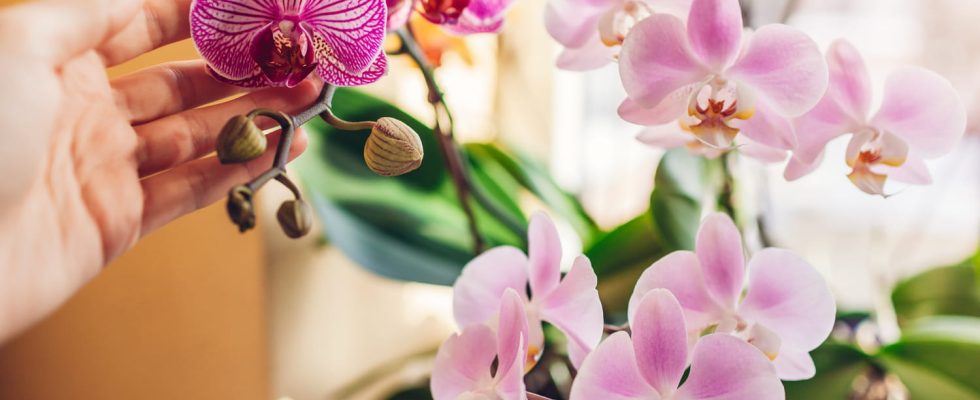Your orchids will bloom consistently if you add this to the watering water.
Orchids are among the most fascinating and prized plants, but they can sometimes be tricky to grow, and it can be difficult to sustain their flowering period, which demotivates many people from owning this plant. Fortunately, there are simple but effective methods to encourage orchids to bloom consistently. One tip that is starting to gain popularity is the use of banana peels.
Before explaining how banana peels can help your orchids bloom continuously, it is important to understand the needs of this flower. Orchids are mostly epiphytic plants, meaning they are not directly rooted in the soil and often grow on other plants in their natural habitat, getting their nutrients from the air, light and surrounding humidity. In home cultivation, replicating these conditions can be a challenge, but it is essential for orchid health and flowering. If owners don’t give this houseplant what it needs, its flowers won’t last long.
To keep your plant blooming constantly, the solution is in your kitchen: banana peels. These are rich in potassium, an essential nutrient for plant growth and flowering. By adding banana peels to your watering water, you provide your orchids with extra potassium which can promote more abundant and prolonged blooming.
Preparing water for irrigation using banana peels is simple. Start by taking one or two ripe banana peels and remove any remaining fruit residue. Cut the skins into small pieces and place them in a container of lukewarm water. Let them soak in water for a few hours or even a few days. The longer the skins sit in the water, the more nutrients are released. Once the water has turned a slightly yellow tint and the nutrients have been extracted from the banana peels, it is ready to be used to water your orchids.
For best results, water your orchids with water containing banana peels every 10 days or so. This frequency allows plants to regularly absorb the nutrients necessary for flowering. Be careful not to overdose on potassium, as an excess of this element can be harmful to plants.
